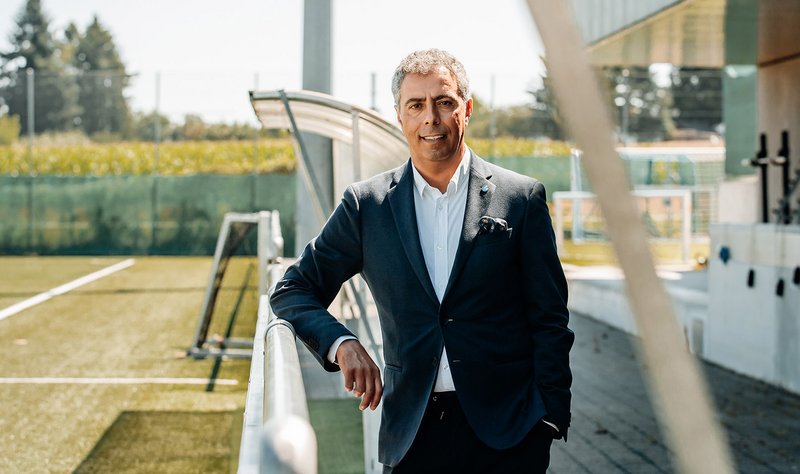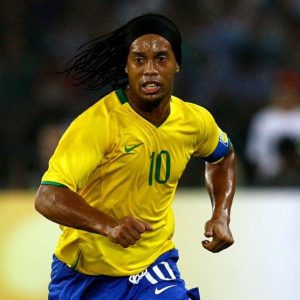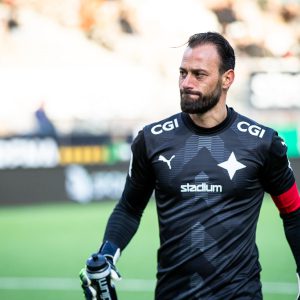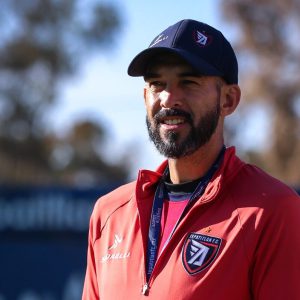

João Carlos Pereira: “A player has to be looked at in a multidimensional way” (Part II)
Photo credits: Swiss Football League
João Carlos Pereira has extensive experience as a head coach in incredibly diverse competitive contexts – Portugal, Switzerland, Cyprus, Qatar, and Kuwait. In the second part of this exclusive interview, he describes the operating dynamics at Aspire Academy, reflects on the significance of his youth football experience to his career, and reveals how he is getting prepared for his next professional challenge.
The role of coordinating individual training at Aspire Academy required additional attention to detail and that was mirrored in his hectic day-to-day activities. “I usually arrived very early, at 7:30 or 8 am maximum, and left many times at 10 pm. Planning was done weekly, monthly, and quarterly. We had player evaluation periods every three months, and there was a limited number of people who discussed the blossoming of each player. We had a database where the coaches of each team posted their reports. Afterward, we had individual conversations with those responsible for each area to prepare a final report. From this dialogue, observation, and analysis, we defined the list of players for the next period. But, as I said, it was an open list. From there, periodic goals were set for each player and time”.
These individual talks were essential to get closer to the players, but also to make them aware of their deficiencies and capabilities. We wanted to respect the attributes and the way of playing of each player, and in no way slow down their development and the course that each normally has to go through.
“In one week, my department followed the entire training sessions of all levels and teams. We gave individual feedback during breaks or discreetly a question to one or another player who was chosen a priori. We had the role of following up on all of this and discussing video clips, matches, and the player’s performance in the competitions. We had all the data that came to us from the video analysts with the individual actions of each player in each game. We did all this weekly. We also monitored the players’ matches in local competitions, and when there were international games for the national team, we did the same. Every two or three months after that period, we would do an evaluation and choose two players per generation to go in a delegation for a one-week internship period in a prestigious partner club. We went to Real Sociedad, Athletic Bilbao, Villarreal, Eintracht Frankfurt, Hoffenheim, Stuttgart, etc. We went there with a very restricted group of players – normally there were 12 players –, integrating these teams. We did a benchmark. That allowed us to process data and redirect our work”, he added.
The understanding that a football player surpasses his sporting sphere was shared by all the members that integrated the project.
A player has to be looked at in a multidimensional way in all dissipative structures: social, physiological, mental, technical, tactical, etc.
“Considering this, we built a culture of exigency, discipline, responsibility, and autonomy. For us, it became vital not only to coach players but also to train players with the ability to comprehend the game and become autonomous on the pitch. It was perfectly normal to watch players discuss what was required in each exercise, and what were the concerns and potential threats to their performance. In this matter of building a culture, it was important for us to understand that we had some constraints, such as absenteeism and lack of punctuality. When I arrived at the Aspire Academy, the coaches arrived half an hour before training sessions and left immediately after. From a certain point, we all arrived at 8 am and left in the late afternoon, at 7 pm at least”.
The coexistence with a multidisciplinary environment, interacting daily with professionals from heterogeneous areas of expertise, was extremely fruitful for him. “Frequently, I say that I was a coach before, and I am another now. I was a national U19 coach in a transition period between one coach and another. I was asked to take on that role for two months, and I built a technical staff of 17 people. That illustrates the kind of detail and planning we put into our work. Aspire had to construct a lot around the football teams that did not exist at the time. Departments such as video analysis, sports psychology, scouting, etc. We also had a lot of scientists and researchers. If we wanted, we could get involved in their projects. Whenever I was free, I tried to be part of some that helped us learn principles applicable to training. I remember taking part in one about virtual reality. The player visualized all his actions as if he were on the field seeing it with his own eyes. In other words, he analyzed himself within the space, identifying all the references in the game and obtaining information. That helps us work on many things and intervene in various areas of player development”.
This adventure through youth football made João Carlos Pereira confirm that a high-performance player is not a finished outcome and can always enhance his game, regardless of the age and experience he has gradually accumulated. “For six years, I was not alienated from football. I maintained my connection to result-oriented football because unfortunately, that is how football is seen nowadays. One thing is certain: after working at Aspire Academy, I began to better understand the complete chain. During his time at FC Barcelona, Joan Vilà, the person in charge of La Masia, started to develop something very interesting. He provided consultancy to football players. Carles Puyol was already 31 years old and he once told Joan he had the feeling that he needed his help to make a qualitative leap in his game. Everyone thinks that a player at that age is finishing his career and some players even think they have nothing to learn anymore because they already dominate everything. Joan Vilà started working with him and Puyol got even better. It all starts inside the player’s head. From my experience at Aspire, I had contact with some former renowned players such as Raul González and Xavi, with whom I still have a great relationship today. Last December, I was in Barcelona doing an internship with him. His brother was also working with me in my department in Qatar. I got closer to some people who have a vision of the game and this kind of mentality so that I can continuously evolve. The sky is the limit”.
At the same time that we – coaches – are working on a team’ game model or on the team’s performance as a collective structure, the player can and must define their individual goals – which should be aligned with the common goals set for the team –, in a parallel and consistent manner.
After his experience in Qatar, João Carlos Pereira joined the historic Zürich club Grasshoppers, where he successfully achieved promotion to the Swiss Super League. “It was an exceptional and very demanding experience. There were ten teams and almost eight candidates. Fortunately, we managed to be in the first spot from the first to the last round. There was a period when we lost the leading place because we did not play. As soon as we get back to playing those missing games, we got back to the first place. It is a highly competitive context. It became even harder because we had a low average age. The ability to stay focused and not lose track was important. It was a tremendous learning experience”.
More recently, in the 2021-2022 season, he coached Académica de Coimbra and has been incessantly looking to improve his game model for his future professional opportunity. “I am not a quiet person, so I have questioned the whole process again. We have been working on everything that involves training: exercises, reinforcing ideas from the game model, dropping principles, adding others, and simplifying some things. We are thinking about the game and adding details, but when we realize it, there is a lot of information for the players. I am one of those who believe that one should train in complexity, but there must be a balanced relationship between what we propose and what we obtain. We have been working on a script to win each week. Set pieces, throw-ins, and all of that. It is a time-consuming and dynamic job that involves a lot of energy, not only on my part but also of the people who gravitate around me – my staff, who is fundamental for this”, he concluded.
Categories
Latest Courses
-
9 Lessons
-
1 Lesson
-
6 Lessons
You May Also Like
-
-
August 1, 2022
-
-
June 3, 2022
-
-
May 27, 2022





